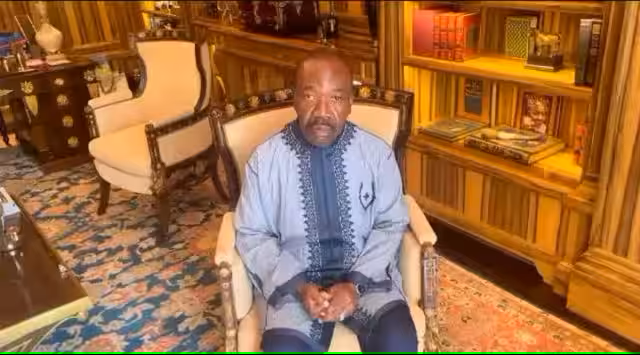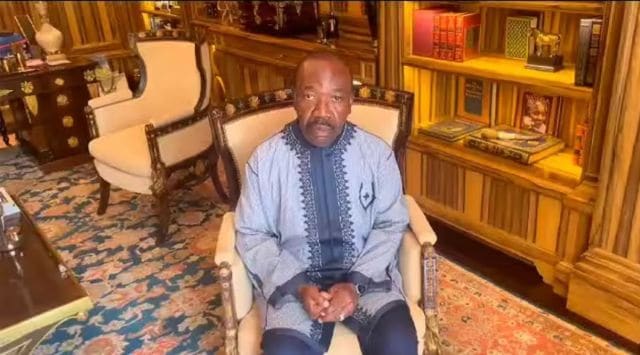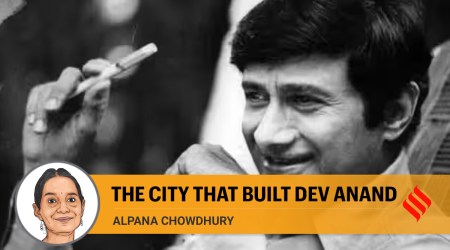Coup in Gabon: Is governance in Francophone Africa falling like dominoes?
- September 27, 2023
- Posted by: admin
- Category: Africa

The French hold over their former colonies in Central and West Africa was strong, but it did not lead to good governance or prosperity. France is perceived as a supporter of extant regimes come what may.
By Gurjit Singh
The coup in Gabon is accentuating problems in Africa. From a distance, it appears as if a set of dominoes is falling. While there have been unconstitutional changes of government in several Central and West African countries recently, the situations often differ though the root causes are perhaps similar.
Gabon had much going for it. It was France’s best friend in Africa. It has a large Chinese investment. It is a member of the UN Security Council. It is the headquarters of the Economic Commission for Central African States (ECCAS). It has peaceful borders with Cameroon, Congo and Equatorial Guinea. In search of better pastures, it joined the Commonwealth in 2022 as its 55th member along with Togo.
Gabon’s rulers would not abide by their constitution despite half a century of Bongo family rule. In April, the constitution was again amended, as always linked to the person of the Head of State. Contesting his third election despite ill health, Ali Bongo Ondimba is accused of stealing the election again. The first time he did so by defeating the respected Jean Ping, a former Gabonese foreign minister, who had been the chairperson of the African Union Commission.//
00:00PreviousPlayNext
00:00 / 03:01MuteFullscreenCopy video urlPlay / PauseMute / UnmuteReport a problemLanguageShareVidverto Player
ADVERTISEMENT
An outpouring of frustrated nationalist sentiment — as people rejoiced in the dislodging of Bongo just after he claimed victory in an election — has emerged. The presidential guard ousted him like in Niger. In Niger, there were Russian flags in the crowd; in Libreville, it is just the national anthem of Gabon that is being sung.
There is a failure of governance. The ECCAS, the regional organisation for Central Africa, is defunct, and several of its members — Rwanda, Burundi, and more recently the Democratic Republic of Congo (DRC) — have chosen to join the East African Community. Rwanda, Gabon and possibly the DRC chose to join the Commonwealth even though they are old members of the Francophonie.
The French hold over their former colonies in Central and West Africa was strong, but it did not lead to good governance or prosperity. France is perceived as a supporter of extant regimes, come what may. In Gabon, France has condemned the coup, which is good, but it has also asked that Bongo be accepted as the president, based on the results of the election which the people disbelieve. This tarnishing of the French image has distanced it from the people of their former colonies. As favoured regimes became alienated from the people, the distaste with France increased.
People in the region are impoverished because other than Gabon, most of the countries impacted by coups are LDCs, often landlocked. They are still largely dependent on exporting critical raw materials but there is no trickle-down impact on poverty reduction. Besides poor economic conditions, there is also a lack of governance. The people and civil society in these areas believe France has done little to improve matters. French forces offered support to governments through their presence in these countries, ostensibly to fight radicalisation. Now, they are being seen as protectors of unpopular regimes.ADVERTISEMENT
They are challenged now by special forces, often trained by France or other Western countries. Sometimes they reach out to Russia and the Wagner group, but so far that is not visible in Niger or Gabon. What you see is militaries channelling popular discontent and taking over. The difficult part now is to get the military back into the barracks. A Gabon minister told me on the day of the coup that while Libreville was quiet, the future is full of disquiet and uncertainty.
When the African Union was formed in 2002, it was supposed to prevent such military takeovers. It had a rule that if a country had a coup, it would be suspended from the AU. It did this inconsistently. Moreover, if an elected head of state changed the constitution to elongate his term of office, that would also be considered a coup. This rule is ignored and various countries see leaders alter constitutions to stay in power. A cardinal AU principle of improving governance and using peer pressure to ensure that leaders abided by their own rules is staring at failure.MOST READ1IAS officer, transferred over stadium row, now compulsorily retired by Govt2Watch this Space: Chandrayaan-3 sleeps as US Space Force punches a hole in atmosphere3ISRO’s Chandrayaan-3 does not wake up as hope dims for Vikram and Pragyan4Karan Johar says he’s single, difficult for him to find a romantic partner: ‘Gave my all to one relationship, it didn’t fructify’5Jimmy Shergill says he slept in a hospital bed on Munna Bhai MBBS set: ‘People thought I was in character, but…’
Written by Gurjit Singh
Updated: September 2, 2023 11:29 IST




This video grab shows Gabon President Ali Bongo Ondimba sitting in his residence in Libreville, Gabon, Aug. 30, 2023. (BTP advisers on behalf of the President’s Office via AP)Listen to this article00:001×1.5×1.8x
The coup in Gabon is accentuating problems in Africa. From a distance, it appears as if a set of dominoes is falling. While there have been unconstitutional changes of government in several Central and West African countries recently, the situations often differ though the root causes are perhaps similar.
Gabon had much going for it. It was France’s best friend in Africa. It has a large Chinese investment. It is a member of the UN Security Council. It is the headquarters of the Economic Commission for Central African States (ECCAS). It has peaceful borders with Cameroon, Congo and Equatorial Guinea. In search of better pastures, it joined the Commonwealth in 2022 as its 55th member along with Togo.
Gabon’s rulers would not abide by their constitution despite half a century of Bongo family rule. In April, the constitution was again amended, as always linked to the person of the Head of State. Contesting his third election despite ill health, Ali Bongo Ondimba is accused of stealing the election again. The first time he did so by defeating the respected Jean Ping, a former Gabonese foreign minister, who had been the chairperson of the African Union Commission.//
00:00PreviousPlayNext
00:00 / 03:01MuteFullscreenCopy video urlPlay / PauseMute / UnmuteReport a problemLanguageShareVidverto Player
ADVERTISEMENT
An outpouring of frustrated nationalist sentiment — as people rejoiced in the dislodging of Bongo just after he claimed victory in an election — has emerged. The presidential guard ousted him like in Niger. In Niger, there were Russian flags in the crowd; in Libreville, it is just the national anthem of Gabon that is being sung.
There is a failure of governance. The ECCAS, the regional organisation for Central Africa, is defunct, and several of its members — Rwanda, Burundi, and more recently the Democratic Republic of Congo (DRC) — have chosen to join the East African Community. Rwanda, Gabon and possibly the DRC chose to join the Commonwealth even though they are old members of the Francophonie.
The French hold over their former colonies in Central and West Africa was strong, but it did not lead to good governance or prosperity. France is perceived as a supporter of extant regimes, come what may. In Gabon, France has condemned the coup, which is good, but it has also asked that Bongo be accepted as the president, based on the results of the election which the people disbelieve. This tarnishing of the French image has distanced it from the people of their former colonies. As favoured regimes became alienated from the people, the distaste with France increased.
People in the region are impoverished because other than Gabon, most of the countries impacted by coups are LDCs, often landlocked. They are still largely dependent on exporting critical raw materials but there is no trickle-down impact on poverty reduction. Besides poor economic conditions, there is also a lack of governance. The people and civil society in these areas believe France has done little to improve matters. French forces offered support to governments through their presence in these countries, ostensibly to fight radicalisation. Now, they are being seen as protectors of unpopular regimes.ADVERTISEMENT
They are challenged now by special forces, often trained by France or other Western countries. Sometimes they reach out to Russia and the Wagner group, but so far that is not visible in Niger or Gabon. What you see is militaries channelling popular discontent and taking over. The difficult part now is to get the military back into the barracks. A Gabon minister told me on the day of the coup that while Libreville was quiet, the future is full of disquiet and uncertainty.
When the African Union was formed in 2002, it was supposed to prevent such military takeovers. It had a rule that if a country had a coup, it would be suspended from the AU. It did this inconsistently. Moreover, if an elected head of state changed the constitution to elongate his term of office, that would also be considered a coup. This rule is ignored and various countries see leaders alter constitutions to stay in power. A cardinal AU principle of improving governance and using peer pressure to ensure that leaders abided by their own rules is staring at failure.
It is not as if Anglophone Africa does not have coups, but there are fewer as in Sudan. Analysts ascribe this to the fact that in most Anglophone countries, there is a civil society operating which provides channels for democratic expression and poverty alleviation. In the French-speaking countries, the weakness of government structures and the presence of absolute rulers make it easy for them to be taken over. Senegal is also a Francophone country, and it has been saved from unrest by President Macky Sall declaring that he will not contest for a third term.ADVERTISEMENT
The dislodging of governments in the Central African Republic, Mali, Burkina Faso Sudan, Guinea, Chad, Niger and Gabon makes it seem as though there is a domino effect. The role of regional institutions is coming into question. West Africa is less dysfunctional but ECOWAS was always more potent. However, four of its 15 members are under military governments. The juntas unite and prevent a consensus. Big powers like France and the US don’t want to confront regimes as in Niger and possibly will also not do so in Gabon. Counter coups are unlikely due to the popularity of the juntas.ALSO READ


Trevor Noah made Delhi laugh — he should have made us uncomfortable too


Dev Anand and Bombay — a love affair for the ages


Christophe Jaffrelot writes: How Sanatan Dharma was used to defend caste,…


This World Tourism Day, Jammu and Kashmir beyond the hotspots
This could lead to an impasse where Western security interests could continue. But how would the military go back to the barracks? How would new governments be selected? The technocratic experiment with PM Hamdok in Sudan failed. Where would a new leadership emerge from since most people of the elite of Francophone Africa normally live in Paris, which perhaps disqualifies them in the eyes of their own people. Leaders have emerged from ranks of UN officials who are nationals of these countries in the past. That may be a basis for a beginning.
